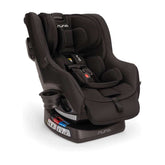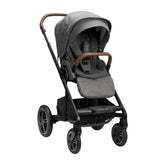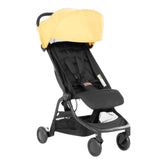6 Ways to Relieve Breast Pain and Tenderness During Pregnancy

Updated 19 Dec 2024
Tender, sore breasts are one of the earliest signs of pregnancy. For some women, the symptoms begin as early as two weeks after conception. Hormonal changes can make the breasts ache or feel more sensitive to touch. Your breasts will continue to grow and change throughout your pregnancy as your body prepares for the baby’s arrival. Let’s take a look at what causes breast pain during pregnancy and how to relieve some of the discomforts.
Causes of Breast Pain During Pregnancy
After conception, your body is inundated with estrogen and progesterone hormones that work quickly to prepare your body for growing and nourishing a new baby. This includes the stimulation of milk-producing glands and increased blood flow to your breast fat and tissue. The result? A more buxom bosom and, for many, a more painful, sensitive one at that. Nipple sensitivity is also fairly typical. The same estrogen-progesterone combination can make this part of your breast feel pain or discomfort a bit more acutely.
For many women, breast soreness subsides near the end of the first trimester. By the end of pregnancy, though, many women begin to feel breast pain again as the body shifts into high gear preparing for birth and colostrum production.
Another source of pain and discomfort that can occur after the baby is born is when breasts become engorged with milk. Breasts will swell and harden in the hours following birth due to the extra blood flow and production of breastmilk. Engorgement pain typically occurs when your milk first comes in but can arise later as you attempt to build a regular nursing routine. This is normal and expected. Many of these same pain relief techniques will help alleviate postpartum breast pain as well.
What Pregnancy Breast Pain Feels Like
Every mom-to-be will experience it a little differently. Many women report feeling fullness or heaviness. Others describe it as a sharp, shooting pain or a throbbing. Still, others compare it to a dull ache, soreness, or just increased sensitivity.
How to Relieve Breast Pain During Pregnancy
Sore breasts are so common among pregnant people that there’s plenty of advice on how to relieve them. If these techniques don't alleviate your discomfort, talk to your healthcare provider about other options.
1. Wear a supportive nursing bra
A lacy, delicate underwire bra won’t do the job for most people during pregnancy. You’ll need something softer and more supportive. The American Pregnancy Association advises pregnant people to look for a bra that has the following features:
- Extra hooks for adjustability
- Soft cotton lining
- Deep band beneath the cups instead of an underwire
- Wide shoulder straps

The Carriwell Seamless Nursing Bra is a soft and comfortable bra that molds to your changing body shape. The easy one-handed nursing clasps expose the entire breast while nursing, maximizing skin-to-skin contact between you and your baby.
2. Minimize contact
Touch and pressure will only aggravate sensitive breasts. Opt for loose-fitting clothing. Adjust purse straps and seatbelts so that they lie between your breasts instead of across them. In addition, make sure your partner understands what’s going on and touches you carefully. Be honest about what feels okay and what does not.
3. Use cold compresses
Place a towel over your chest, and apply an ice pack to the area to relieve discomfort. A frozen bag of peas or corn wrapped in a dish towel works wonders!
4. Wear a bra to bed
Sleeping in a bra reduces movement and helps you avoid scratching your tender chest against your sheets or pajamas. You can wear a bra made specifically for sleep or wear a sports bra or your regular bra.

Pregnant and nursing moms appreciate comfort while they sleep, but they still need support. This new racer-back design of the Medela Nursing Sleep Bra gives plenty of both. The improved fabric blend has unique wicking properties to keep moms cool and comfortable all night long. The seamless design with a crisscross front makes it easy to handle those nighttime feedings.
5. Shower carefully
For some people, nipple sensitivity is so high it can make toweling off after a shower a painful experience. The warmth or coolness of the water may feel great, but high water pressure might be painful. Adjust your shower head if possible to a more gentle setting and don’t stand directly under the water flow if it’s painful. A washcloth strategically placed across your chest while you shower your front side may also help shield sensitive breasts.
6. Use breast pads
If the texture of your bra cup is irritating, consider using a breast pad as a liner to help protect your nipples. They're commonly used by nursing moms to absorb leaking milk and are available in a disposable form or as washable, reusable cotton pads.

Medela 100% Cotton Washable Nursing Pads are soft and quickly absorb moisture, giving you peace of mind. The natural fibers promote air flow for healthy skin. The contoured shape provides an exceptional fit and the no-shift design keeps the pads in place. The pack includes four reusable pads and a laundry bag for easy washing.
How Long the Breast Pain Lasts
The good news is breast pain generally goes away on its own when you nurse your baby and/or after your body decides how much milk it needs to make. Nursing pain also tends to resolve itself. However, if the pain is continuous, you should consult your doctor.
The Bottom Line on Breast Pain and Tenderness During Pregnancy
Breast pain and tenderness are very common throughout pregnancy and right after delivery. If your symptoms become worse or linger for longer than you think they should, consult your doctor. With these home remedies and some solid, early nursing advice, you’ll be pain-free in no time.









